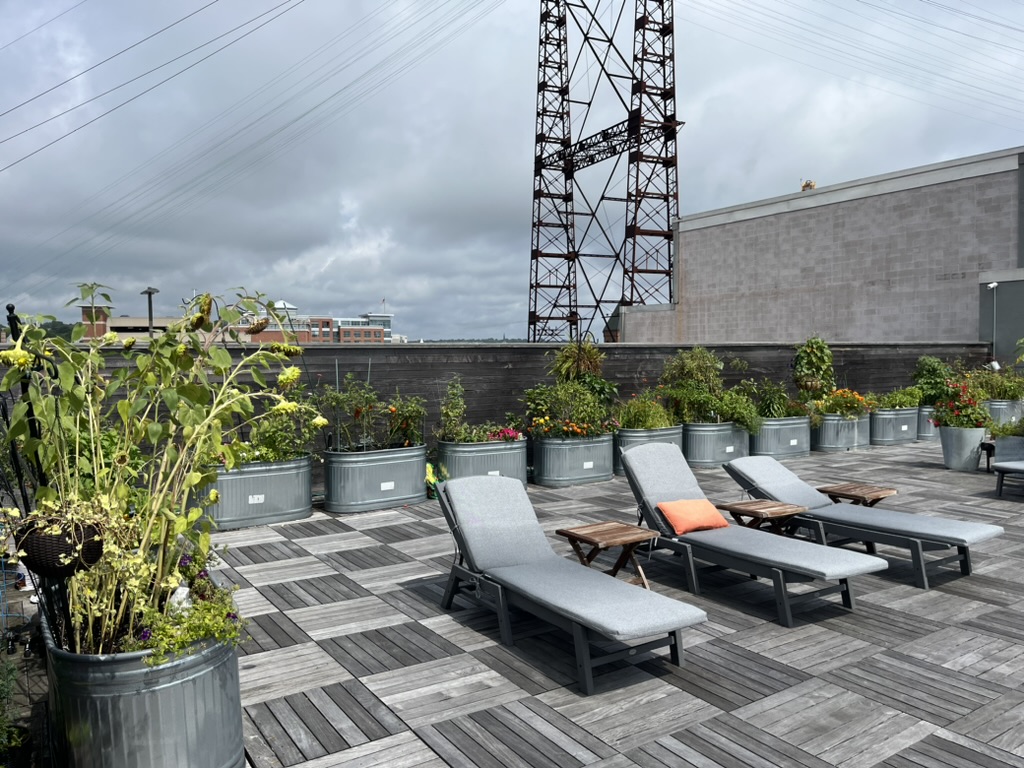August 27, 2024
Explore the growing urban farming movement in Norwalk, including vibrant farmers’ markets and community gardens. Learn how these initiatives are enhancing access to fresh, locally sourced food, fostering community bonds, and promoting environmental stewardship. Find out where you can support and participate in Norwalk’s urban farming efforts below.
Introduction to Urban Farming in Norwalk
Urban farming is rapidly gaining momentum across the United States, and Norwalk is no exception. As awareness of environmental issues and the benefits of locally sourced food grows, urban agriculture has become a cornerstone of our community. This movement spans various activities, from rooftop gardens and community plots to backyard vegetable patches, all contributing to a more sustainable and self-sufficient lifestyle.
But urban farming isn’t just about growing plants—it’s about nurturing a healthier, more connected city. In this post, we explore how urban farming is reshaping Norwalk, strengthening community ties, and contributing to environmental sustainability.
But beyond the green-thumb appeal, what does urban farming mean for a city like Norwalk? Let’s dive into the current landscape and explore the positive impacts it has on our community.

Exploring Norwalk’s Farmers’ Markets and Community Gardens
Norwalk is proud to host several thriving farmers’ markets and community gardens, each playing a crucial role in our urban farming landscape. Norwalk is home to several thriving farmers’ markets and community gardens that embody the spirit of urban farming.
Norwalk Farmers Markets
Norwalk’s farmers’ markets are more than just shopping destinations—they’re community hubs where residents can connect with local farmers, discover artisanal goods, and learn about the importance of fresh, locally sourced food.
Norwalk Community Health Care Farmers Market
- When: Wednesdays (June – November 2024) | 11 am – 3 pm
- Where: 120 Connecticut Avenue, Norwalk, CT
- When: Wednesdays (June – November 2024) | 11 am – 3 pm
- Where: 205 Main Street, Norwalk, CT
Rowayton Farmers Market at Pinkney Park
- When: Fridays (May – November 2024) | 12 pm – 5 pm
- Where: 177 Rowayton Avenue, Norwalk, CT
First Congregational Church Farmers Market
- When: Saturdays (June – October 2024) | 9 am – 2 pm
- Where: 3 Lewis Street, Norwalk, CT
Triangle Community Center Market
- When: 3rd Saturday of the Month (August – September 2024) | 12 pm – 2 pm
- Where: 650 West Avenue, Norwalk, CT
These markets are essential to our city’s food system, offering residents access to fresh, nutritious produce and supporting small-scale farmers and artisans. They also provide an opportunity to engage with the community and participate in local sustainability efforts.

Community Gardens in Norwalk
In addition to farmers’ markets, Norwalk promotes community gardens like the Fodor Farm Community Garden, where residents can cultivate their own vegetables and herbs. These gardens are more than just a place to grow food—they’re a space for education, collaboration, and community building. Participants develop a deeper connection to their food sources, contributing to a healthier and more resilient city.
Environmental and Community Benefits of Urban Farming
Urban farming and farmers’ markets offer numerous benefits that extend well beyond the dinner table. Here’s how they positively impact Norwalk:
- Environmental Sustainability: Urban farming reduces the carbon footprint associated with long-distance food transportation. By promoting local food production, these initiatives also enhance biodiversity and improve air quality, creating a healthier urban environment.
- Food Security and Accessibility: Norwalk’s urban farming initiatives provide residents with fresh, affordable food options. This is particularly important in combating food deserts and ensuring that all community members have access to nutritious food.
- Economic Growth: Farmers’ markets and community gardens support local economies by keeping food dollars within the community. They also provide a platform for small-scale farmers and artisans to thrive, contributing to the local economy.
- Community Building: These spaces foster a sense of community by bringing people together around a shared interest in sustainable living. Whether it’s through shopping at a farmers market or volunteering in a community garden, residents have the opportunity to connect, learn, and grow together.

How to Get Involved in Norwalk’s Urban Farming Movement
Getting involved in Norwalk’s urban farming scene is both easy and rewarding. Here are a few ways to start:
- Visit a Farmers Market: Support local farmers and artisans by shopping at one of Norwalk’s farmers’ markets. These markets often host workshops and events where you can learn more about sustainable farming practices.
- Volunteer at a Community Garden: Whether you’re a seasoned gardener or just starting, volunteering at a community garden like Fodor Farm is a great way to contribute to your community and learn about urban agriculture.
- Start Your Own Urban Farm in Norwalk: Take advantage of community gardens allowed in most zoning areas and consider creating a rooftop garden, as these are generally permitted with landlord approval. Research local zoning laws, explore available land and rooftop spaces, and connect with resources like the American Community Gardening Association for guidance to get started on your urban farming journey.
For more information on local urban farming initiatives, check out our Community Initiatives page or visit the City of Norwalk’s official site.




